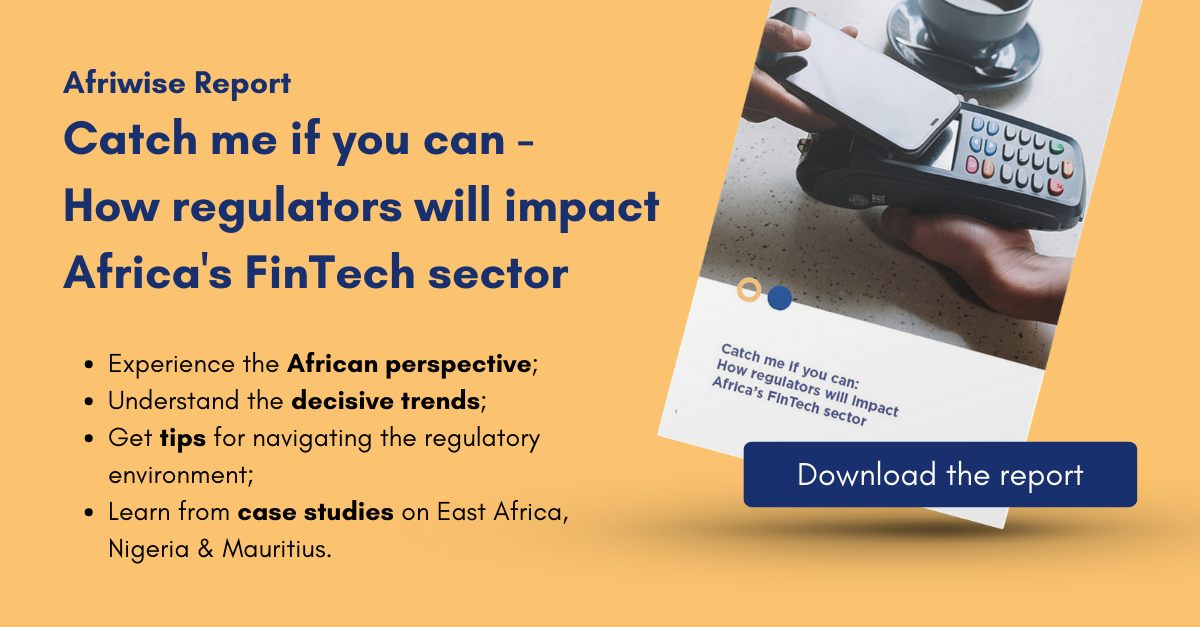Nigeria’s young population, increasing smartphone penetration and improved regulatory environment are creating the perfect storm for the FinTech sector to flourish. Nigeria is now the home to over 200 standalone FinTech companies, plus a number of FinTech solutions offered by banks and mobile network operators as part of their product portfolio. Between 2014 and 2019, Nigeria’s bustling FinTech scene raised more than $600 million in funding, attracting 25 percent ($122 million) of the $491.6 million raised by African tech start-ups in 2019 alone—second only to Kenya, which attracted $149 million.
Notable FinTechs in Nigeria include Flutterwave, Remita, Paystack, Interswitch, PiggyVest, and Kuda Bank. In 2020, Stripe acquired Paystack, a startup that provides a quick way to integrate payment services into an online or offline transaction by way of an API. At $200 million, the deal was the biggest start-up acquisition to date to come out of Nigeria.
Despite the increased activity in the FinTech sector in Nigeria, there is significant potential for further growth. While FinTech investments in Nigeria are growing, it is still only a small fraction of the $36 billion invested in FinTech globally. Further growth could be enabled by a more concerted effort to improve the framework regulating the sector. As more and more investors are coming into the sector and the Nigerian government ramps up interest in technology, experts think that despite headwinds, things are moving in the right direction.
How many regulators does it take…?
According to Colin Egemonye, a Partner and head of Fintech at Goldsmiths Solicitors, there are currently a number of organisations or agencies regulating Nigeria’s FinTech sector. The Central Bank of Nigeria (CBN) is the main regulator, but FinTech companies will also need to operate with the Corporate Affairs Commission (CAC), Securities and Exchange Commission (SEC), Nigerian Communications Commission (NCC), Nigeria Deposit Insurance Corporation (NDIC) and National Information Technology Development Agency (NITDA). Depending on a business’s operations, it could be regulated by all these or just some. Processes are sequential and there is no up-to-date online guidance on the stages of who and how to register your FinTech business.
With overlap in the remit of some authorities, companies have their work cut out. This proves not only confusing but expensive as companies are required to secure licenses from different agencies. To obtain a licensing of payment services license from the CBN alone, a company would pay N1 million, the equivalent of approximately $1,800. Other license fees may be required, dependent on the nature of the FinTech business and on top of this companies must pay for additional taxes and stamp duty – making it a costly venture. Coupled with the fact that licenses can often take significant time to be approved – sometimes up to 2 to 3 years – even in a more established FinTech system such as Nigeria, there are challenges.
Uncertainty is not helped by the fact that the agencies themselves are not clear yet as to whom they are regulating. Last year, the SEC and CBN directly contradicted each other when they both announced that they would be responsible as the main regulators of cryptocurrencies. Discussions are still ongoing on this matter, and it remains unresolved. Furthermore, confidence has been dealt a blow by the actions of regulators. In the last 24 months, major regulatory events that ended motorcycle hailing and suspended cryptocurrency transactions through banks have been widely viewed as setbacks to innovation. These scenarios and types of regulations have been criticised for their suddenness – issued without forewarning. They have raised the question: can start-ups really flourish in Nigeria? Indeed, the stakes are high, and non-compliance could leave you in hot water. The Nigerian government’s ban on Twitter should serve as a warning to all companies in the technology sector.
Issues that businesses need to be particularly aware of in the short term are ensuring Know Your Customer (KYC) policies and Anti-Money Laundering (AML) policies are in place, as this is likely to be a priority for regulators enforcing the sector. Data protection will also be an important consideration for FinTech companies as NITDA is clamping down on data rules.
How to navigate this challenging regulatory environment?
Over to Colin Egemonye of Goldsmiths Solicitors: “From the outset, if you adopt international best practice, you will not go far wrong. Establishing relationships with regulators is a no-brainer – nurture and maintain those relationships. Our regulators will be keen to reciprocate. Send your staff for secondment at the regulator’s offices and invite them back for training. There are extensive knowledge gaps, and this sort of relationship can help you increase knowledge on both sides”.
“In Nigeria, there is renewed government interest in tech generally. We are all aware of what happened to Twitter in Nigeria. One has to keep a very careful watch now from a regulatory and tax point of view and a political point of view – make sure you’re on top of it all.”
What about future developments?
Well - we've published an extensive report on the subject. Dive into some of the trends that we encounter daily across the continent, a.o. increasing anti-money laundering (AML) legislation, or regulatory sandboxes. Download the report here.
